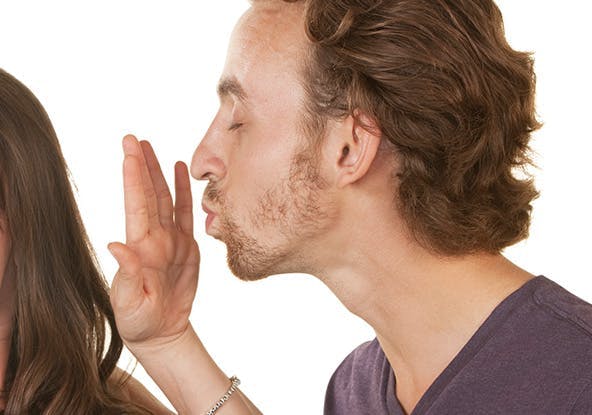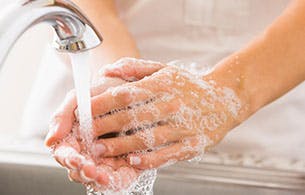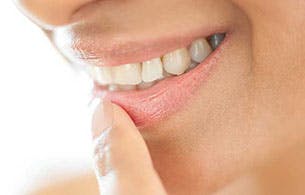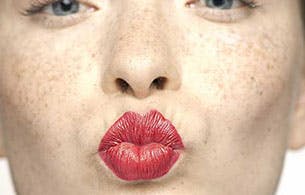Back to Managing Your Triggers articles

WHAT CAUSES COLD SORES?
Cold sores, also known as fever blisters, are the small red bumps or blisters that appear around the mouth and lips, but what is it that causes a cold sore in the first place? Keep reading to learn more about cold sore causes and early symptoms—so you can recognize one at the first sign and act fast.
What causes cold sores?
- Cold sores are caused by the herpes simplex virus, usually strain one (HSV-1).
- In fact, an estimated 67% of the world population under age 50 have HSV-1 because it is so contagious.
- Most people aren’t sure when they first encountered the virus as it’s usually contracted in early childhood where it may not appear as a visible cold sore until later in life.
- For most people, HSV-1 remains inactive and they may never have an outbreak or even know they have the virus.
- Recurrent cold sores are caused by the virus ‘waking up’ and infecting the skin cells around the lips and mouth.
How do you get cold sores?
Unfortunately, there are many ways to contract the HSV-1 virus. These include:
- Kissing a person infected with the virus. They don’t necessarily have to have a cold sore at the time to spread the virus to others.
- Sharing objects like toothbrushes, water bottles, drinking glasses, utensils and lip balms with a person infected with the virus.
- It is also possible to spread the virus from the mouth to the eyes and other parts of the body.
Why do you get cold sores?
Once you are infected, people get cold sores because the virus never leaves your body. You may experience one initial outbreak of fever blisters with no recurrence, multiple outbreaks a year, or you may never experience symptoms.
Causes of cold sore outbreaks include:
- A weakened immune system: They’re called cold sores and fever blisters for a reason: when your immune system is compromised, you’re more susceptible to an outbreak. So when you feel a cold, fever, or the flu coming on, take the right precautions and rest up.
- Stress: Stress can also wear down your immune system, giving that dormant cold sore a chance to launch a sneak attack. Instead, when you feel stressed, breathe deeply and try some relaxation techniques.
- Sun Exposure: Ultraviolet (UV) radiation from the sun can trigger cold sores. Always wear an SPF lip balm and try to stay out of the sun.
- Injury or Trauma: If lips are cut or dry and chapped, it can trigger a recurrence. Make sure to keep your lips moisturized and drink plenty of fluids to avoid dehydration.
Is this bump on my lip a cold sore, or something else?
Once a cold sore progresses to the blistering stage, it’ll probably be relatively easy to tell what it is, but a nondescript bump on your lip might be less easy to categorize. Is it a cold sore, or something else, like a pimple? As you need to treat a cold sore at the first sign with a medicated treatment (like Abreva cream) if you hope to shorten the healing time, you might be wondering if there are any early symptoms of a cold sore that you can look out for.
As it happens, cold sores do have a telltale sign: a characteristic itching, tingling and/or burning sensation, which some people may experience a day or two before the cold sore appears.2 So, don’t go on sight alone—if you feel that itching/tingling/burning start to set in, treat the affected area right away for the best chance at a speedy recovery.
Consult your physician or pharmacist if you are unsure.
Abreva for cold sores
If you’re looking to shorten cold sore healing time, use a medicated cold sore treatment like Abreva. Using Abreva at the first tingle of a cold sore blocks the virus from spreading and infecting healthy cells. Abreva reduces the duration of pain, burning, itching, and tingling.
Does Abreva work?
Abreva can get you back to being you, faster, by shortening healing time. In clinical trials, the time to complete healing was statistically significantly shorter with Abreva than placebo.
Abreva cold sore cream comes in a tube or pump and uses the same formula. Of course, to be sure Abreva is right for you, always read and follow the label or ask your doctor or pharmacist.







